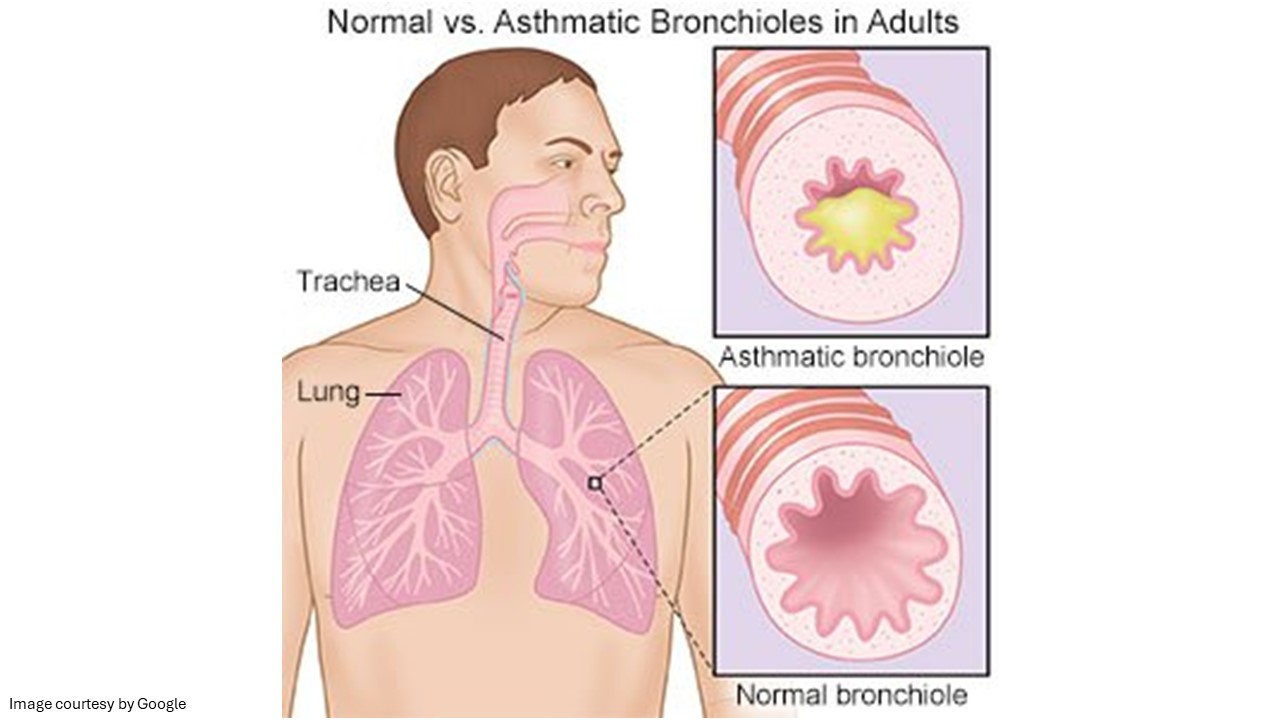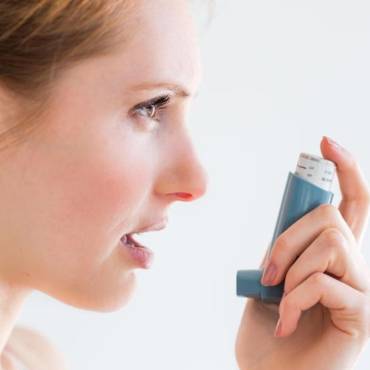Asthma is a chronic condition that causes inflammation and narrowing of the bronchial tubes, the passageways that allow air to enter and leave the lungs. If people with asthma are exposed to a situation that modifies their regular breathing patterns, the asthma exacerbation symptoms can become critical.
There are two types of asthma: allergic and non-allergic. Its symptoms include coughing, shortness of breath, chest tightness, and wheezing. The airways in a person with asthma are very sensitive and react to many things. Contact with these triggers leads to asthma symptoms. One of the most essential parts of asthma control is recognizing your triggers and avoiding them when possible. The only thing that you should not avoid is exercise. Medicines before exercise can allow you to stay active and avoid signs of asthma.
Asthma complications
Asthma complications include:
-
- Signs and symptoms that disturb sleep or work.
- Sick days from work or school due to asthma flare-ups.
- Permanent narrowing of the bronchial tubes affects your normal breathing pattern.
- Emergency visits to clinics and hospitals for serious asthma attack symptoms.
- Side effects from long-term use of some of the medicines stabilize critical asthma.
Actual treatment makes a big difference in staying away from both short-term and long-term complications caused by asthma.
Complications that affect lifestyle:
Uncontrolled asthma can adversely affect your quality of life. The condition can result in:
-
- Fatigue
- Absence from work
- Stress, anxiety, and depression.
If you think that your asthma is really affecting your quality of life, consult your doctor. Your personal asthma care plan might require being reviewed to control the condition better.
In some cases, asthma can become a cause of several serious respiratory complications, including:
-
- pneumonia
- a collapse of part or all the lung
- respiratory failure, in which the levels of oxygen in the blood become critically low or the levels of carbon dioxide become majorly high
- status asthmaticus, that is, chronic asthma or severe asthma attacks that are unresponsive to treatment.
All of these complications are life-threatening and require asthma attack treatment.
Prevention:
You, along with your doctor, can make a step-by-step plan for living with asthma causes/condition:
-
- Follow your asthma action plan – With your doctor and health care team, look for a detailed plan for taking asthma medications and preventing an attack. Then, strictly follow your plan. Asthma is a continuous condition that seeks regular checks and treatment. Maintaining control of your treatment will make you feel better about your life in general.
- Get vaccinated for influenza and pneumonia – Staying active with vaccinations will prevent the flu and pneumonia from touching asthma flare-ups.

-
- Identify and avoid asthma triggers – Many outdoor allergies, from pollen and mold to cold air and air pollution, can cause severe asthma symptoms. Recognize what worsens your asthma, and take action to avoid such triggers.
- Monitor your breathing – You should learn to recognize warning symbols of an upcoming attack, such as slight coughing, wheezing, or shortness of breath. But, since your lung functioning might reduce before you notice any signs or symptoms, consistently measure and track your peak airflow with a home peak flow meter.
-
- Identify and treat attacks early – If you respond spontaneously, you have fewer chances of a severe asthma attack. You also won’t require much of medications to control your symptoms. When your peak flow measurements reduce and alert you for an oncoming attack, take your medication as instructed and immediately stop any activity that may hit the attack. If your symptoms are not improving, get medical help as your action plan suggests.
- Take your medication as prescribed – Since your asthma seems to be improving, don’t modify anything without consulting your doctor. It’s better to bring your medications to each doctor visit so that he can crosscheck that you’re taking your asthma medicines correctly and using the right dose.
-
- Pay attention to increasing quick-relief inhaler use – If you see yourself dependent on your quick-relief inhaler, like albuterol, your asthma isn’t under control. Schedule a visit to your doctor about adjusting your treatment.
Severe asthma treatment aims to control airway inflammation and avoid known allergy triggers, like pet dander and pollen. The main objective is regularizing normal breathing, preventing asthma attacks, and restoring daily activities. Regular asthma treatment assists in preventing symptoms, and asthma inhalers are the preferred method because the drug can directly reach the lungs in smaller doses with the least side effects. Some asthma cure medicines are given in pill or injection form, too.
Take care of your health by following all the required steps, and learn how to treat asthma medically and naturally to live healthily.



